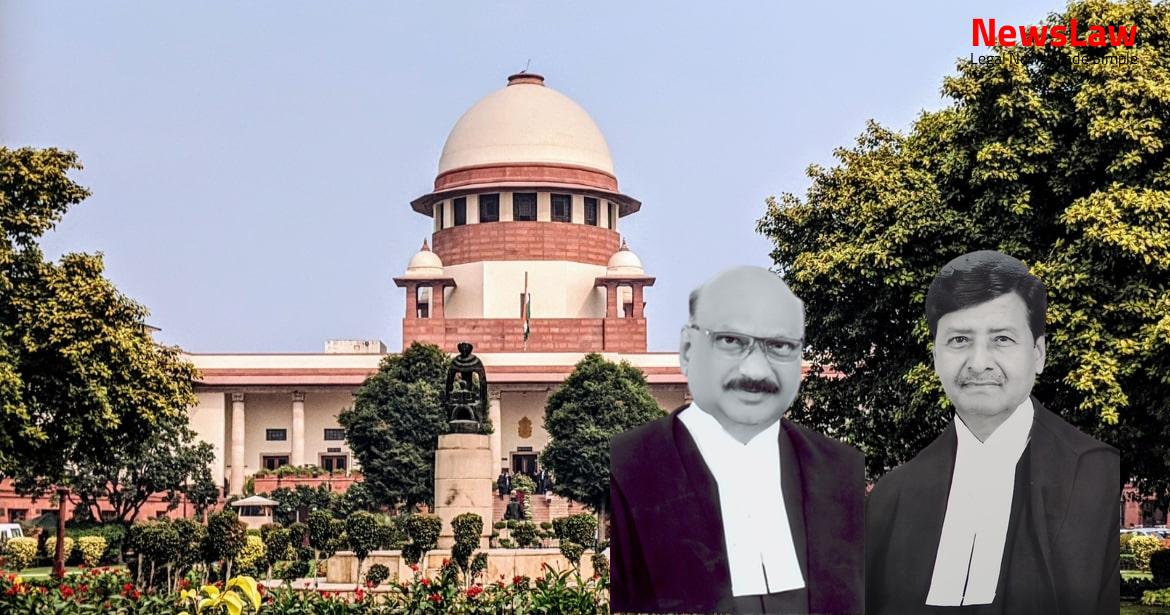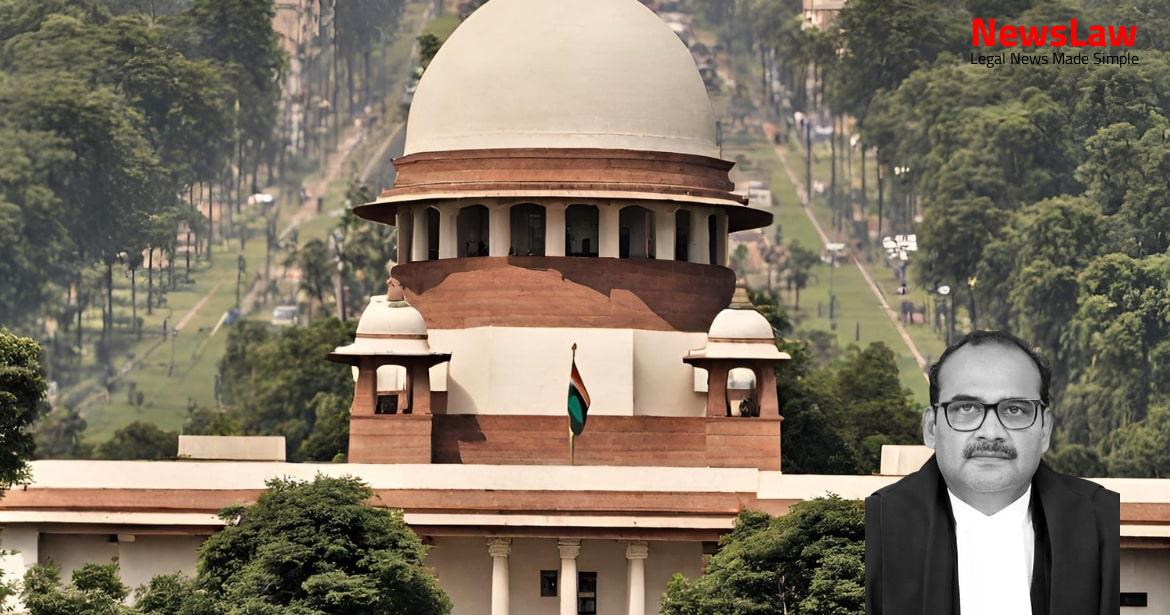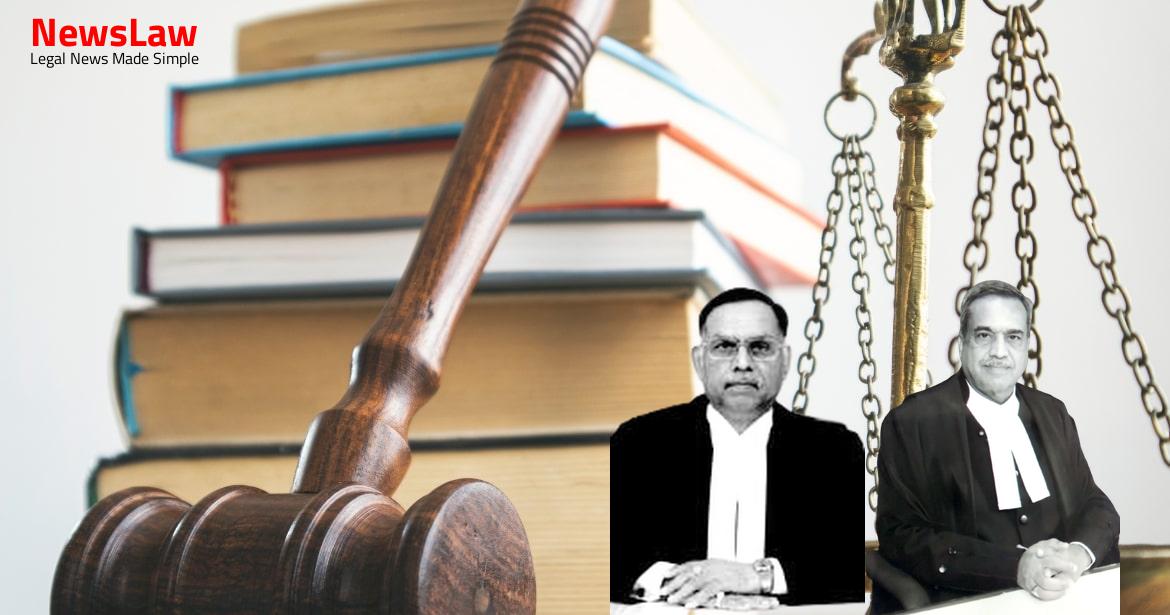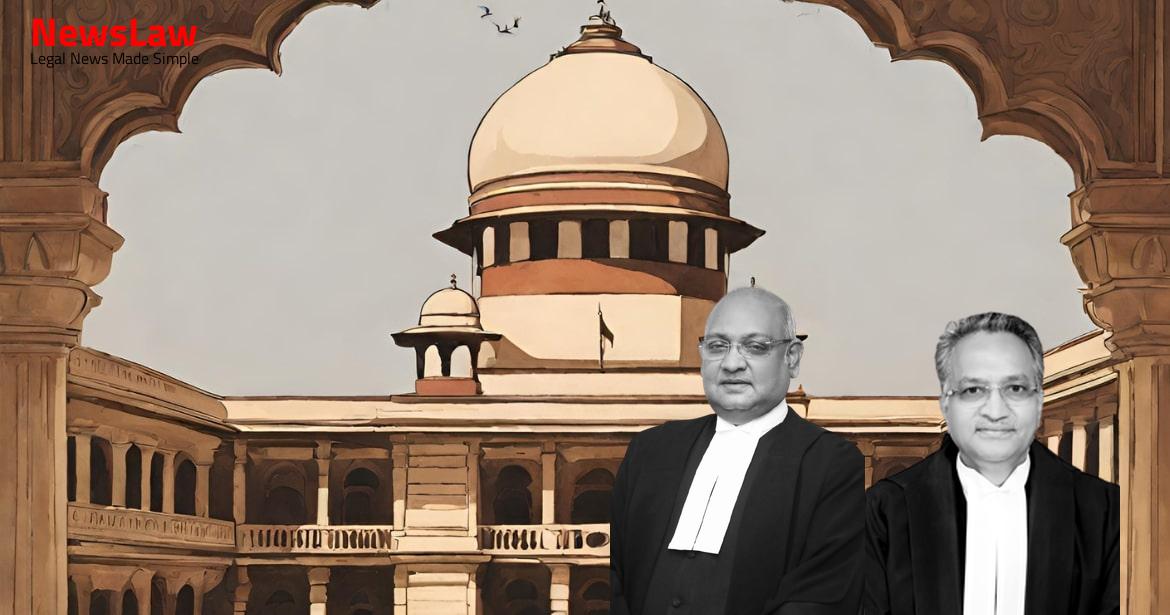The Supreme Court of India has issued a significant judgment on the bail application of Neeraj Singal vs. Special Judge, focusing on the complex web of companies allegedly involved in siphoning off funds. The case also involves Nittin Johari, the CFO and Whole Time Director of BSL. Key points revolve around the application of the mandatory bail conditions under Section 212(6)(ii) of the Companies Act. Stay tuned for insights on the legal implications of this ruling. #LegalCase #SupremeCourt #BailApplication #CompaniesAct #EconomicOffense
Facts
- Allegations against Brij Bhushan Singal and Neeraj Singal, promoters of Bhushan Steel Ltd., for siphoning off funds through a complex web of companies.
- Accusations of fraudulently availing credit from lender banks and manipulating the books of accounts and financial statements of BSL, causing huge losses to banks.
- Nittin Johari, the CFO and Whole Time Director of BSL, allegedly played a central role in perpetrating the frauds, including using fraudulent letters of credit and inflating figures to avail of greater Drawing Power from banks.
- Serious Fraud Investigation Office initiated investigation into 157 companies and 130 individuals related to the case.
- Nittin Johari’s arrest on 02.05.2019 and subsequent judicial custody since 08.05.2019.
- Co-accused Neeraj Singal had previously been granted interim reliefs by the High Court of Delhi, challenging the constitutionality of certain sections of the Companies Act.
- Special Judge’s dismissal of Nittin Johari’s bail application on 06.06.2019, followed by the filing of Complaint before the Special Court on 01.07.2019.
- The High Court of Delhi allowed Nittin Johari’s bail application (No 1791/2019) in the impugned order, leading to the current appeal.
Also Read: Tower Infotech Ltd. Bail Order Appeal
Arguments
- Petitioner argued against granting bail to Neeraj Singal based on the peculiar circumstances and lack of reasons for parity.
- Mandatory conditions under Section 212(6)(ii) of the Companies Act require satisfaction that the accused is not guilty and not likely to commit offences while on bail.
- Reference made to observations in Y.S. Jagan Mohan Reddy v. CBI regarding the belief of innocence for bail.
- Challenged the High Court’s grant of interim bail to Neeraj Singal only based on the challenge to the constitutionality of the Companies Act sections, not on merits.
- High Court criticized for not considering gravity of the offense, relying only on ‘broad probabilities’ while granting bail.
- Importance of considering factors like gravity of the offense in economic crime cases highlighted.
- Parliament amend PMLA Section 45 to impose twin bail conditions specifically for PMLA offenses, similar to Companies Act.
- Petitioner argued that post-amendment, Companies Act Section 212(6) aligns with PMLA Section 45 in imposing twin bail conditions.
- Rebuttal by Respondent’s counsel emphasizing cooperation during investigation as a key factor for granting bail after the chargesheet is filed.
- The Appellant contended that the documents sought to be submitted ran into more than 70,000 pages, delaying the trial process.
- Allowing the current appeal could result in Y.S. Jagan Mohan Reddy spending well over a year in custody before the trial commences.
- The Appellant argued against the constitutionality of Section 212(6) of the Companies Act, emphasizing the difficulty in obtaining bail under the provision.
- The Appellant highlighted that Bail was granted within five days after the chargesheet had been filed.
- The Special Judge ordered parties to be summoned in batches until December 2019 on 16.08.2019.
- The Appellant unfairly targeted Y.S. Jagan Mohan Reddy by arresting only him, despite numerous other parties named in the complaint.
- No allegations of tampering with evidence or influencing witnesses were made against Y.S. Jagan Mohan Reddy.
- Referring to Y.S. Jagan Mohan Reddy (supra), the Appellant emphasized the accused’s right to renew the bail prayer after the chargesheet was filed.
Also Read: Priority of Employees’ Dues in Asset Sale: SARFAESI Act vs. Land Revenue Code
Analysis
- The High Court granted bail to Neeraj Singal without considering the general principles required for bail under Section 439 Cr.P.C.
- The High Court failed to apply the mandatory conditions of Section 212(6)(ii) for granting bail in economic offence cases.
- The High Court’s observation on Neeraj Singal’s role in the offense was considered vague and showed a lack of application of mind.
- The Court seemed to have been influenced by the fact that co-accused Brij Bhushan Singal was not arrested due to old age, and Neeraj Singal had already been granted bail.
- The Supreme Court had stayed the High Court’s order primarily due to its far-reaching consequences, but the bail for Neeraj Singal was not reversed.
- Economic offences are considered differently when it comes to granting bail.
- Previous court decisions emphasize the seriousness of economic offences.
- Bail can be granted when custody is deemed unnecessary after a chargesheet is filed.
- Specific conditions for bail under certain laws must be met, as discussed in various cases.
- The court must be satisfied that there are reasonable grounds to believe the accused is not guilty and will not commit further offences while on bail.
- There is a limitation on bail under the Companies Act, in addition to those in the Cr.P.C.
- Principles for granting bail under Section 439 of the Cr.P.C. must be considered.
- The High Court did not consider all circumstances while granting bail, especially regarding economic offenses.
- Non-arrest of Brij Bhushan Singal and bail granted to Neeraj Singal should not have influenced the High Court’s decision due to the case’s peculiar circumstances.
Also Read: Landmark Judgement on Consumer Rights in Healthcare Sector
Decision
- The impugned order is set aside.
- The matter is remanded to the High Court for reconsideration of Bail Application No 1971/2019 filed by Original Name.
- The High Court is instructed to consider the principles governing the grant of bail under Section 439 of the Cr.P.C.
- The scope and effect of the twin mandatory conditions for grant of bail as per Section 212(6)(ii) of the Companies Act must be taken into account.
- Original Name will continue to remain in custody until the High Court makes a decision on the bail application.
- The appeal is disposed with a request for the High Court to promptly decide the bail application in accordance with the law and the provided observations.
Case Title: SERIOUS FRAUD INVESTIGATION OFFICE Vs. NITTIN JOHARI
Case Number: Crl.A. No.-001381-001381 / 2019



